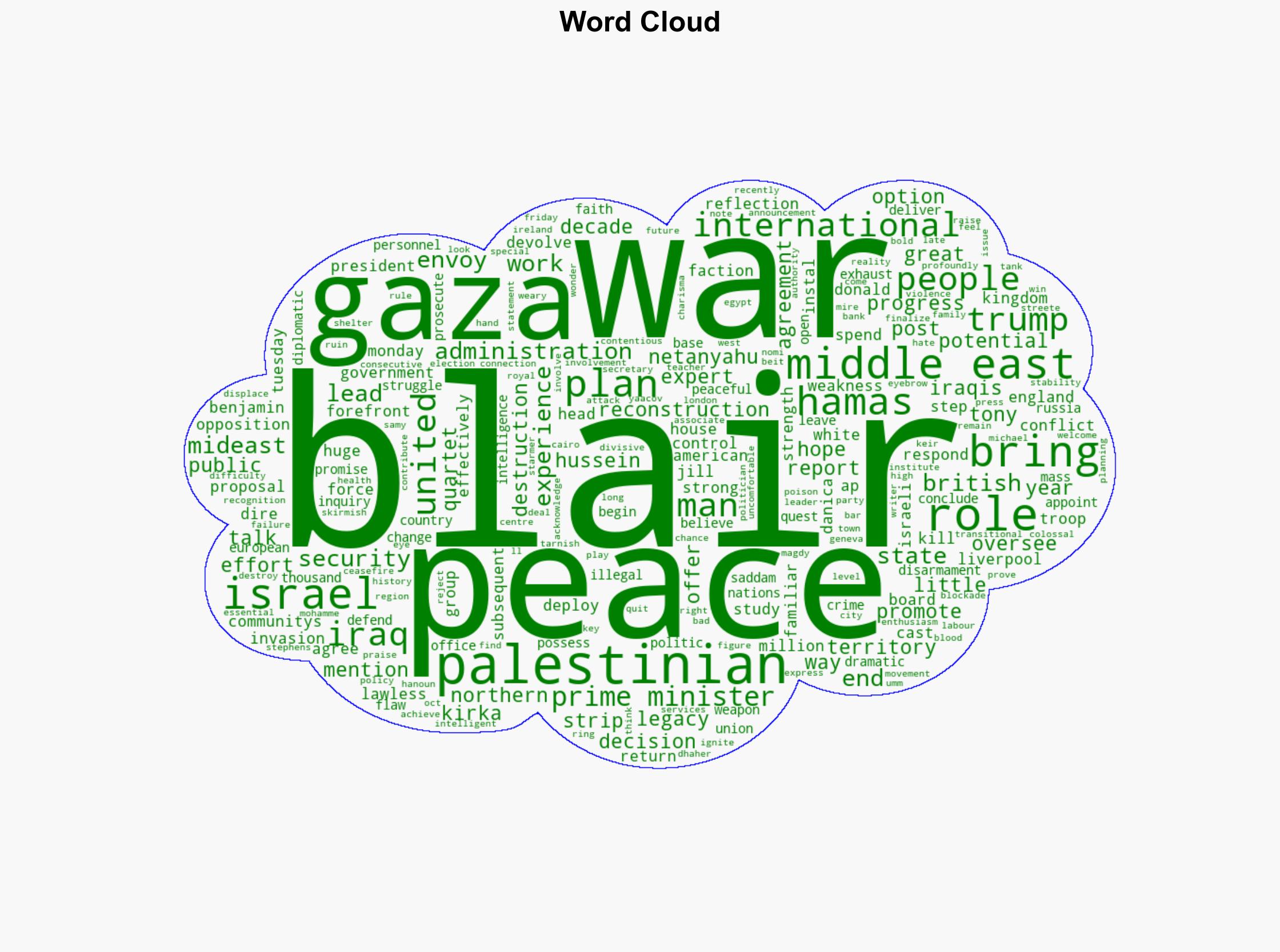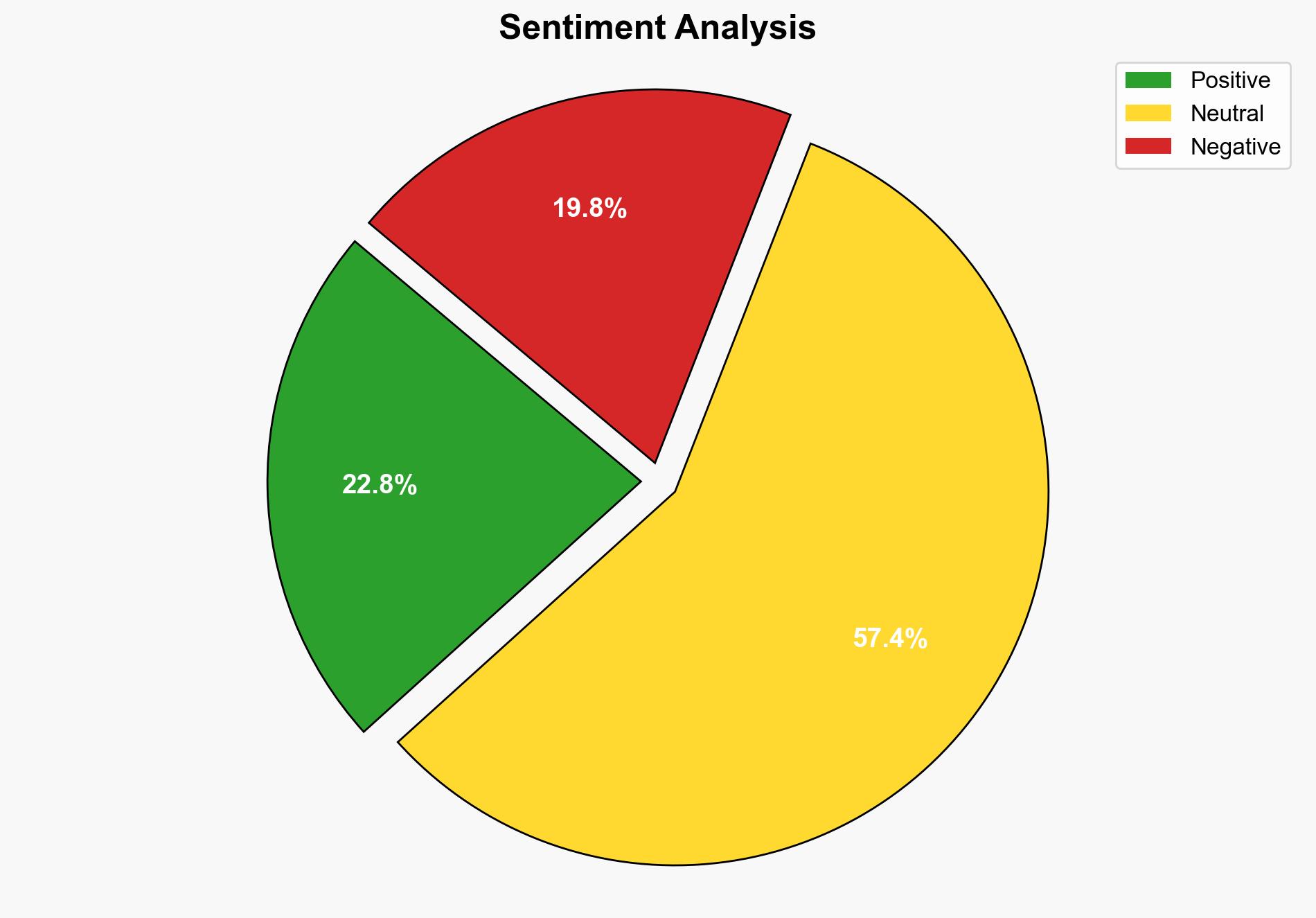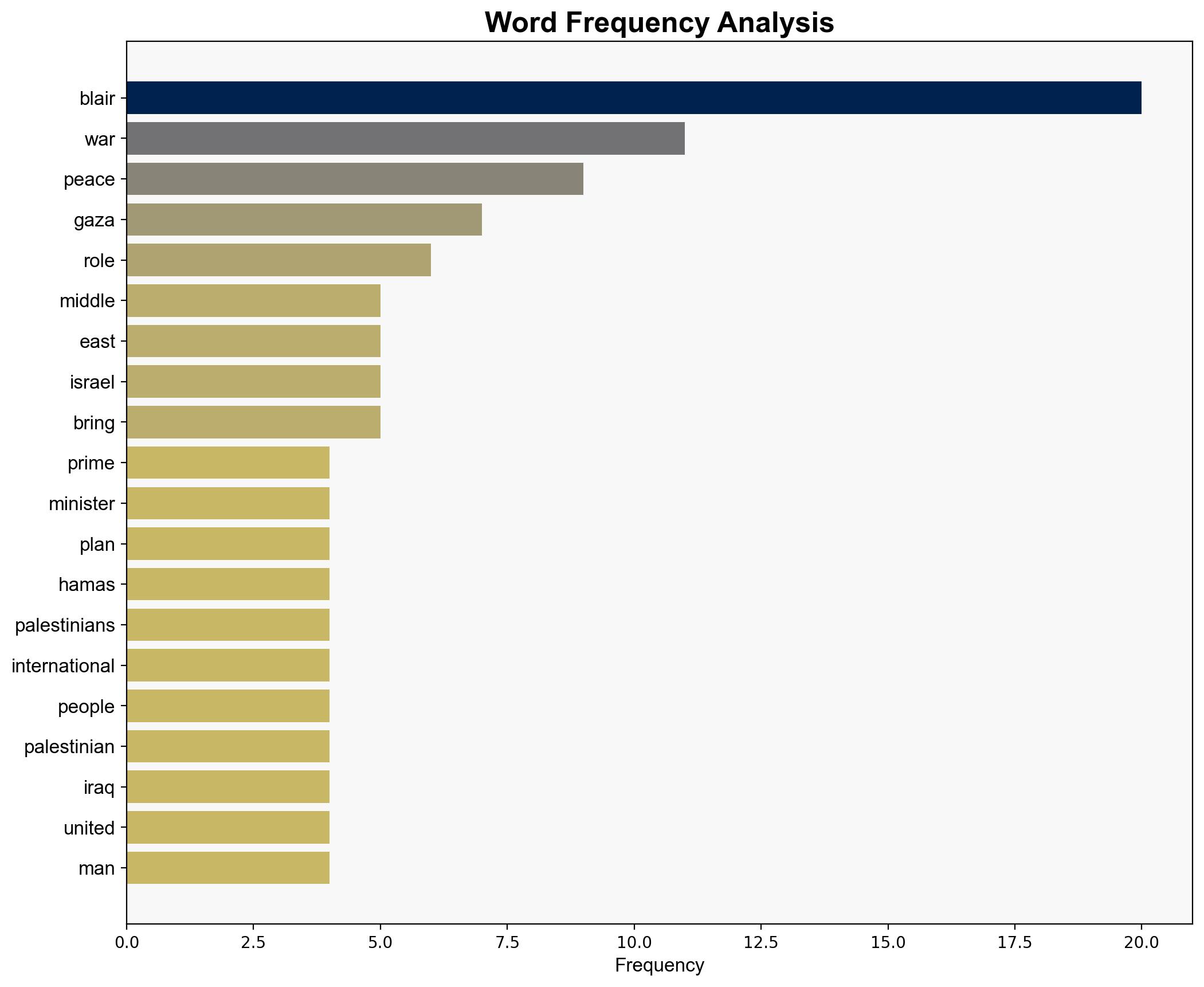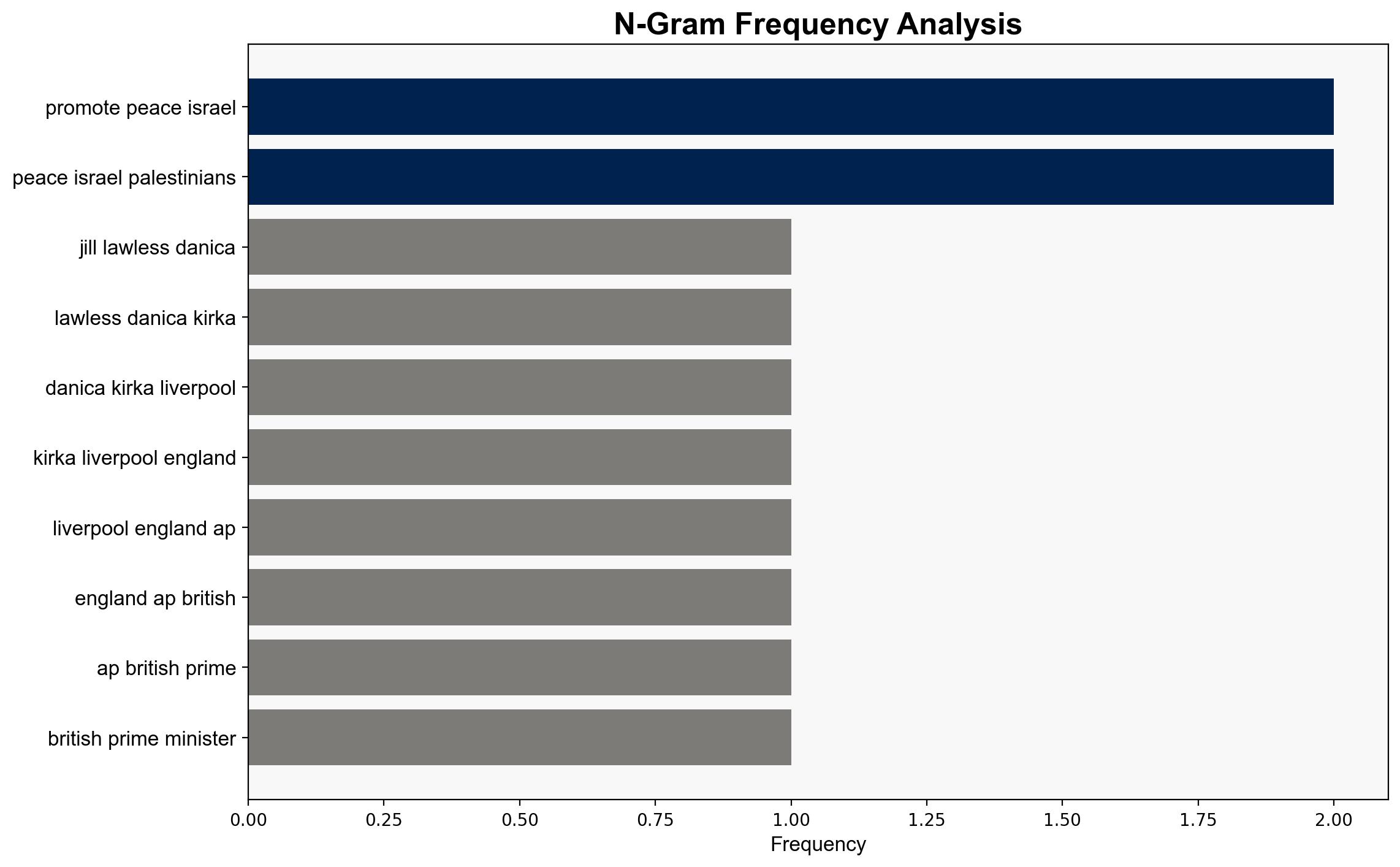Tony Blairs long experience in the Middle East is both his strength and his weakness – Boston Herald
Published on: 2025-09-30
Intelligence Report: Tony Blair’s Long Experience in the Middle East is Both His Strength and His Weakness – Boston Herald
1. BLUF (Bottom Line Up Front)
Tony Blair’s involvement in the Middle East peace efforts presents a dual-edged sword. His extensive experience and connections could facilitate progress, yet his controversial past, particularly regarding the Iraq War, may undermine his credibility and effectiveness. The hypothesis that Blair’s involvement will be more detrimental than beneficial is better supported. Confidence level: Moderate. Recommended action: Consider alternative leadership for peace efforts while leveraging Blair’s diplomatic network.
2. Competing Hypotheses
1. **Blair’s Experience as an Asset**: Blair’s extensive experience and diplomatic connections will significantly contribute to the Middle East peace process, potentially leading to successful negotiations and reconstruction efforts in Gaza.
2. **Blair’s Experience as a Liability**: Blair’s controversial history, particularly his role in the Iraq War, will overshadow his efforts, leading to skepticism and resistance from key stakeholders, thereby hindering peace efforts.
Structured Analytic Technique Applied: Analysis of Competing Hypotheses (ACH 2.0). The second hypothesis is better supported due to Blair’s divisive legacy and the skepticism expressed by various stakeholders.
3. Key Assumptions and Red Flags
– **Assumptions**: Blair’s past successes in Northern Ireland can be replicated in the Middle East; stakeholders will prioritize peace over past grievances.
– **Red Flags**: Blair’s involvement in the Iraq War and subsequent public inquiry findings may lead to distrust. The lack of enthusiasm from Palestinian factions and potential bias in media portrayal could skew perceptions.
– **Blind Spots**: Overreliance on Blair’s charisma and connections without considering alternative diplomatic strategies or leaders.
4. Implications and Strategic Risks
– **Geopolitical Risks**: Blair’s involvement might polarize stakeholders, complicating negotiations and potentially escalating tensions.
– **Psychological Risks**: Blair’s controversial past could lead to a lack of trust, reducing the likelihood of cooperation from key parties.
– **Cascading Threats**: Failure to achieve progress could embolden hardline factions, destabilizing the region further.
5. Recommendations and Outlook
- Explore alternative leadership for peace efforts, possibly involving less controversial figures with strong diplomatic credentials.
- Leverage Blair’s network for behind-the-scenes diplomacy while minimizing his public role.
- Scenario Projections:
- Best Case: Blair’s involvement catalyzes a breakthrough in negotiations, leading to a sustainable peace agreement.
- Worst Case: Blair’s presence exacerbates tensions, leading to further conflict and instability.
- Most Likely: Blair’s involvement yields limited progress, necessitating a shift in strategy.
6. Key Individuals and Entities
– Tony Blair
– Benjamin Netanyahu
– Donald Trump
– Keir Starmer
– Michael Stephens
– Nomi Bar Yaacov
7. Thematic Tags
national security threats, regional focus, diplomatic strategy, conflict resolution




